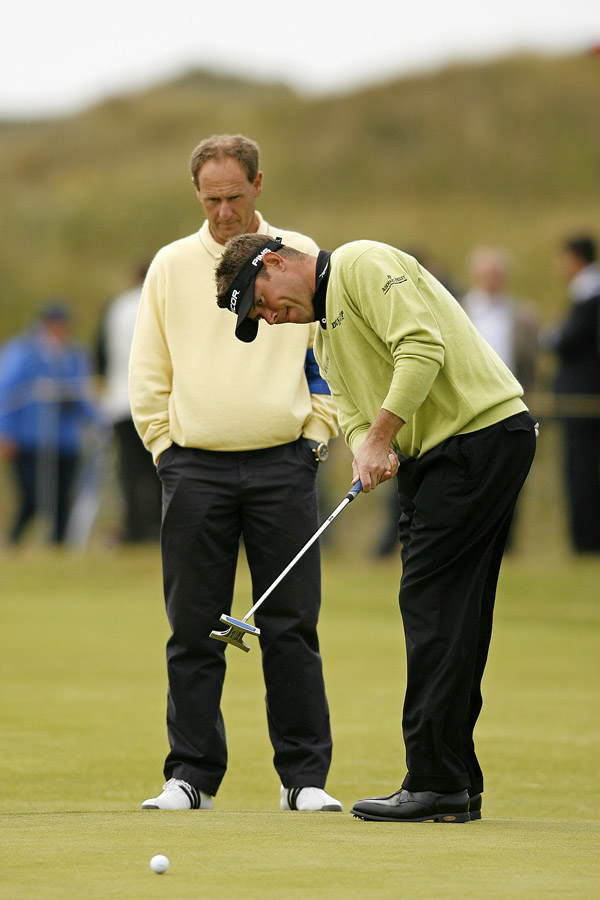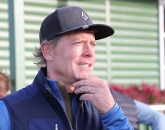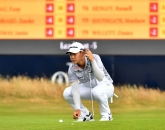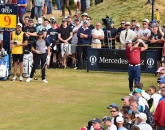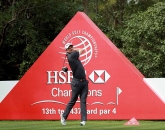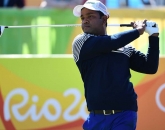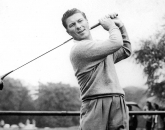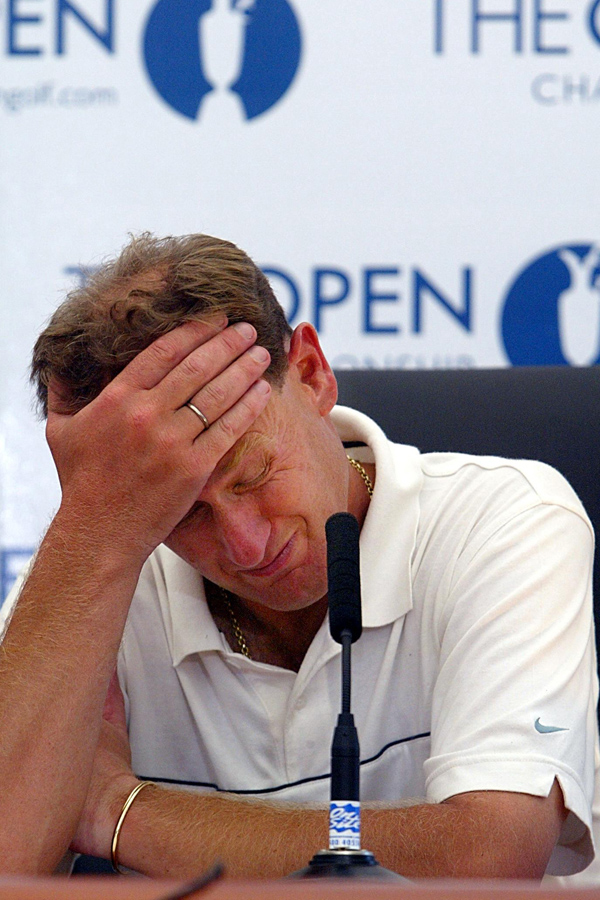 Mark Roe is ready for it. Namely, the barrage of questions that will come around Open time as people revisit what happened in the 2003 championship at Royal St George’s. That was when he and his playing companion, Sweden’s Jesper Parnevik, were disqualified at the end of the third round for a scorecard error.
Mark Roe is ready for it. Namely, the barrage of questions that will come around Open time as people revisit what happened in the 2003 championship at Royal St George’s. That was when he and his playing companion, Sweden’s Jesper Parnevik, were disqualified at the end of the third round for a scorecard error.
To recap, Roe, then 40, had just completed a scintillating Saturday 67 which made him the leader in the clubhouse. He obliged with endless press and TV interviews and was revelling in the likelihood of playing alongside Tiger Woods the following day when, all of a sudden, he was recalled to the scorer’s hut.
His first thought was that he had given Parnevik, who had had an 81, one shot too many or one too few. He started to say he was sorry to the approaching Parnevik when the Swedish player stopped him in his tracks and murmured, “It’s worse than that. Much worse.”
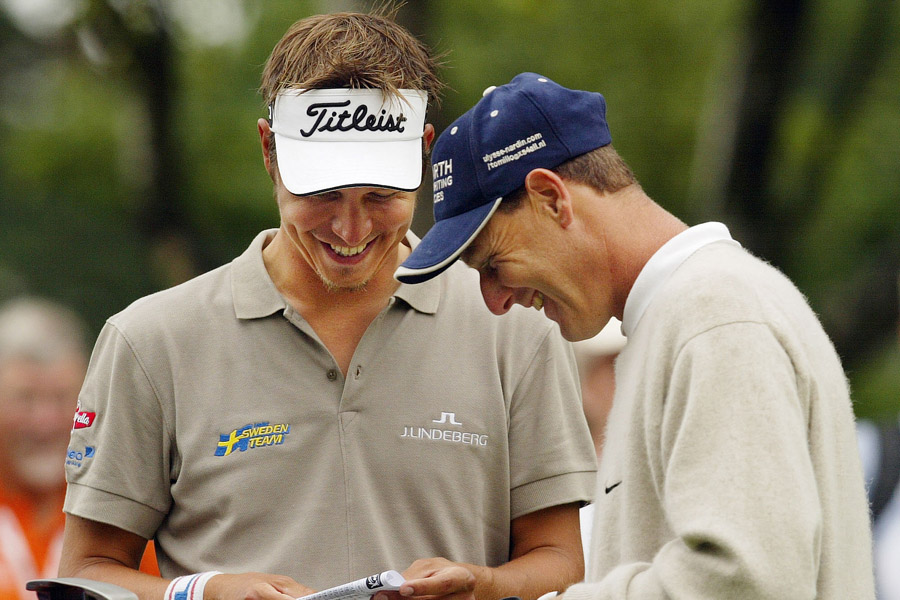 As the whole of the golfing world would soon be aware, the two had signed for the correct scores but on the wrong cards. Roe knew at once what that meant. His chances of winning the 2003 Open were over.
As the whole of the golfing world would soon be aware, the two had signed for the correct scores but on the wrong cards. Roe knew at once what that meant. His chances of winning the 2003 Open were over.
“For the rest of the day,” recalls this former England World Cup golfer, “I was in a state of total shock. I did a second round of all the newspaper and TV stuff and then I drove home.
By the Sunday, in contrast, it had really sunk in ... I was unbelievably emotional and spent most of the day crying upstairs. OK, no-one had expected Mark Roe to win the Open but the impossible is possible in this game and I had been playing with an on-course calm I had never known before.”
Though Roe, a three-time winner on the European Tour, had no hesitation in taking the blame at the time, he was little by little struck by the notion that the process was less than fair. “I started to question why, when the scorer was an official, his word did not carry the same weight as that of an official on the course,” he said. “After all, when an on-course man gives a decision, that decision is final regardless of whether it’s right or wrong.
“In my case,” he continued, “the scorer congratulated me on my 67 and said, ‘You’re free to go’. That was a final decision, so why wasn’t it good enough?”
Three years later, Roe received a phone call from David Rickman at the R&A. The Director of Rules was ringing to say that there had been a revision of the Decisions on the Rules of Golf, one which would henceforth allow a tournament committee to strike the wrong name from an otherwise correctly completed scorecard.
“In the future,” it read, “such an ‘administrative error’ can be corrected without penalty. Revised Decision 6-6d/4 gives a committee the power to strike the wrong name from an otherwise correctly completed scorecard and add the correct name without limit of time.”
Roe was happy on behalf of those who might make the same mistake as he and Parnevik had made. But there was no question of him having a new spate of sleepless nights over what might have been. “Of course,” he said, “I think about it on a regular basis but I’ve moved on.”
And how.
Though many suspected that the disqualification would have spelt the end of his career, it in fact heralded a new beginning.
In the immediate wake of that dark Saturday, Roe drew consolation from the steady stream of emails and texts admiring the gentlemanly way with which he had accepted his lot. And also from his own realisation that this was “a professional tragedy” rather than the kind of personal trauma which, 10 years earlier, had him contemplating suicide amid the guilt of leaving his first wife.
Yet within a matter of days, he was being contacted by TV companies. Not for another version of the weekend’s events but to find out if he would be interested in commentary work. An offer from British broadcaster Sky appealed – and Roe has since turned himself into one of that company’s most valued analysts.
The commentating, in turn, opened the door for another opportunity which was right up his street.
As a TV man who has always worked hard to stay abreast of the players’ technical thoughts, Roe caught up with Lee Westwood when he was practising his chipping in advance of the 2007 Scottish Open at Loch Lomond. He was busy quizzing his old friend when Westwood said a heartfelt, “If only I could chip like you ...”
To which Roe responded with a mischievous, “You will never be able to chip like me.”
When Westwood persisted and suggested that Roe should give him a spot of help, Roe agreed – and so began a partnership which resulted in Westwood notching as many as 17 top 10 finishes in his next 25 events. “Lee was doing what I told him within 40 minutes,” marvelled Roe.
Westwood, when asked about Roe’s input, is apt to recite a litany of coaches – including David Leadbetter and Butch Harmon – who had been unable to help with his short-game. “None of them,” he said, “was able to explain the technique that would make me a better chipper. When Mark gave me a lesson, it’s no exaggeration to say it was a ‘eureka’ moment.
“Now, I can spin the ball where I couldn’t before ... I can also take on tight pin positions because I’m not afraid of what will happen if I don’t pull the shot off and need to get up and down. It has got to be worth five or six shots per tournament, and that’s the difference between finishing 16th and being in contention every week.” Interestingly, Harmon was one of the first of the other coaches to congratulate Roe on what he had done for his fellow Englishman.
Roe, like Denis Pugh and Pete Cowen, was among the coaches on call at last year’s Ryder Cup. “Unsung heroes,” is how Colin Montgomerie labelled the trio. “They were the guys who helped our team to prepare just that bit better than the competition,” said the captain.
Today, the now 48-year-old Roe is one of the hottest short game coaches of the moment – a situation which has enabled him to advertise his instructional services at a hefty £500 per hour.
Earlier this year, the Volvo Golf Champions in a then trouble-free Bahrain was a typically busy week for the ex-player. One moment he was approving Darren Clarke’s latest putting regime – the Ulsterman endeavours to hole 100 four-footers in a row every day – and the next he was keeping an appointment to work with Italy’s Francesco Molinari.
And when his session with Molinari was over, so he switched to TV mode and interviewed a couple of players before a journalist came across to interview him.
Much though Roe loves the TV work, it is the coaching that has done most to take the place of a 21-year playing career – one that ended at the 2006 Dunhill Links Championship, where Roe fired a stylish final-round 67 over the Old Course at St Andrews.
“When Francesco won in Shanghai,” said Roe, in a reference to the WGC-HSBC event the Italian won only a matter of weeks after Roe had taken him under his wing, “it gave me as much of a buzz as if I had won it myself.”
If Molinari, or one of Roe’s other students, were to win at Royal St George’s, that would be the perfect antidote to what happened in 2003.
In which case, the chances are that he will handle the mingled cracks and condolences with precisely the same brand of humour he employs when, for instance, he is playing in a pro-am.
“I always know,” he chuckles, “what people are going to say when we’re heading for the first tee and it’s got to the stage where I’m apt to pre-empt it … I tell them, ‘Whatever you do, don’t give me the scorecard.’”